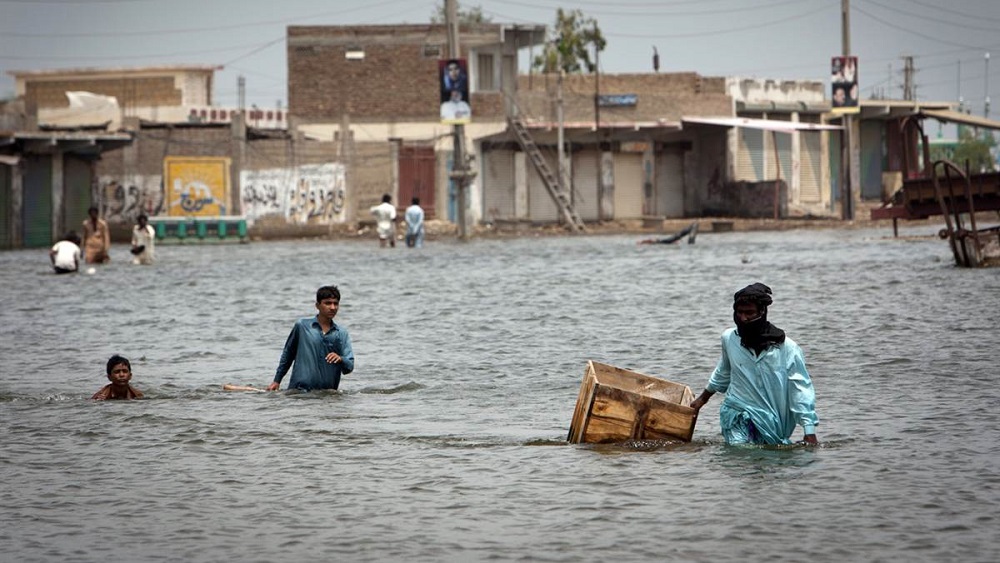As the world prepares for the United Nations climate change summit (COP 23) in Bonn, Germany next month, Pakistan has unveiled a strategy to align its climate action with its financial management systems.
This aims to make existing responses to the challenges and opportunities posed by climate change more effective, and positions the country to better engage in negotiations and resource mobilization at the international level.
Today, the Government of Pakistan and the UNDP released two key documents to improve how climate change is integrated into the country’s budget and public financial and economic management.
Climate Change Financing Framework
The first, known as a Climate Change Financing Framework (CCFF), outlines a reform agenda constituting new policies and processes to better align climate finance to existing climate policy objectives in Pakistan. The CCFF was elaborated in partnership with UNDP’s Governance of Climate Change Finance Programme, which has been supporting the Government of Pakistan since 2012.
The CCFF links policy and budgeting to increase the transparency of allocations while improving the effectiveness of existing public finance.
Another report—anticipated since the release of a related version in 2015—was also released at the CCFF launch. The so-called Climate Public Expenditure and Institutional Review (CPEIR) provides an overview of the landscape of current climate policy and budget spending in the country, with a view to improve future climate action.
“Pakistan is among the top ten countries globally affected by climate change and has experienced these effects dramatically over recent years through devastating floods and catastrophic heat waves. For Pakistan to respond to these challenges a comprehensive approach is needed as part of planning and budgeting,” said Neil Buhne, UN Resident Coordinator and UNDP Resident Representative.
“While climate finance and assistance is increasing, it is still inadequate for the needs. Therefore, all available resources must be used more effectively if countries are to minimize the effects of climate change. CCFFs have also been developed, with UNDP support and assistance from the United Kingdom and Sweden, in Indonesia, Cambodia and Bangladesh. This helps each of these countries to budget and plan better to adopt to climate change, as the CCCF here will help Pakistan to do this,” he added
The CPEIR outlined all climate relevant expenditure by the federal government and the provincial governments of Khyber Pakhtunkhwa, Balochistan, Punjab and Sindh.
The overall results found that Pakistan’s climate expenditure compares well with other countries with the four provinces and the Federal Government spending a national average of around 8 percent of total expenditures on activities related to climate change.
The review also shows that most Federal funds lean towards mitigation activities (that aim to curb greenhouse gas emissions) whereas most provincial funds are oriented towards adaptation (which aim to adapt to the effects of climate change).
“This is a considerable achievement as Pakistan is one of very few countries that have undertaken CPEIRs that comprehensively cover all provinces as well as the federal level. I congratulate the Government of Pakistan in successfully completing this important exercise and in institutionalizing the expenditure tracking system that will prove an important tool in adapting to and mitigating the effects of climate change,” said Mr. Buhne


























Pakistan knows one policy more funds more eating.What about the earlier funds of billions for the environment and the climate safety the nation likes to share.